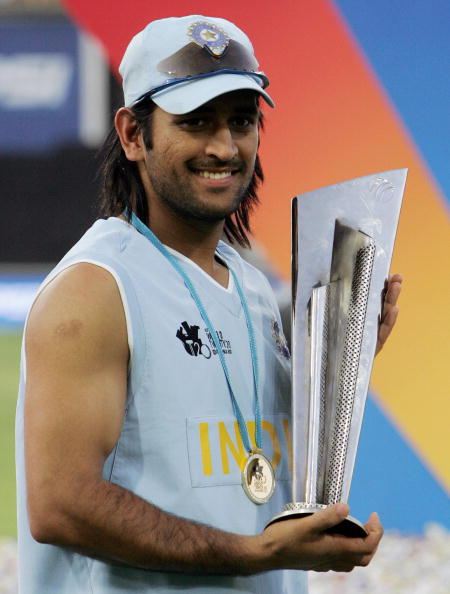An Ode to Dhoni- The Leader
“A true leader has the confidence to stand alone, the courage to make tough decisions, and the compassion to listen to the needs of others. He does not set out to be a leader, but becomes one by the equality of his actions and the integrity of his intent.”

-Douglas MacArthur, American Five Star General.
In cricket, more than most sports, the role of a captain is immense. Bowling changes, field set-ups, team selections, combined with the fact that strategy constantly changes over the span of a game means that a captain is much more than just a good player in the sport. In cricket, a captain must be a leader, a motivator, a conduit between the management and players The Indian cricket team, over the years has been blessed with some great leaders, and undoubtedly Mahendra Singh Dhoni will go down as one of the best among them, in the limited-overs formats at the very least.
Dhoni’s captaincy had many facets that many would dream of, but the centerpiece of his glorious leadership career was undoubtedly the ability to remain calm and composed in the face of pressure. Unflappable, unfazed and stoic on the surface, Dhoni exuded composure and confidence in every situation, which was why his decision-making was almost always on-point. His attitude also rubbed off on the young squad he was leading and mentoring, as evidenced by how good the team got in chasing down the targets, especially when the stakes were high. He helped develop a strong mentality among
His was not a larger than life personality, which allowed the younger players to express themselves. Players like Rohit Sharma, Suresh Raina, and Shikhar Dhawan were inconsistent at the beginning of their careers, but he put his faith in them and helped them flourish to become established and household names.

 © Getty
© GettyAnother trademark of his leadership was that he was unafraid to take risks and follow his instincts. Whether to throw the ball to a part timer like
That isn’t to say that Dhoni was the perfect leader. His skills in the shorter forms were inarguably fantastic, but he struggled to lead the team in the longer formats of the game. His captaincy was too reactionary for the longer form of the game as well, which required a more aggressive approach to
His captaincy was criticized as too defensive for the format, using attacking bowlers like Ashwin to stem the flow of runs instead of getting wickets. He preferred a 7 batsmen- 4 bowler lineup, which caused the team to struggle to bowl out opposition and he was very rigid in his team selections too, putting faith in players out of form, as the test team struggled to win consistently. His tactical flaws were brutally exposed in the whitewashes against England and Australia, as well as the lowest point in Indian cricket’s recent history, an embarrassing home defeat to England. England’s spinners completely outclassed their Indian counterparts as England ran out 2-1 winners. That defeat left a permanent mark on Dhoni as he eventually retired from Test cricket in the middle of the Australia series to prolong his limited-overs career.
But all that cannot tarnish the legacy of Dhoni the captain. Numerous series triumphs, as well as being the only captain to win all ICC trophies mean he has a unique place in cricketing history. He finished with 27 test wins as captain, the most for any Indian. His ODI record too, was exemplary, with 110 wins in 199 ODIs, making him the second most successful captain in the history, behind Ricky Ponting. He led the rise of India as an ODI powerhouse with his astute leadership. His captaincy was like his batting, unorthodox yet effective and dependable.

 ©Getty
©GettyDhoni will always have a prominent place in the Indian cricketing history as a visionary and fantastic leader. His flaws could not tarnish his legacy, but cement it as someone who changed the mentality of the Indian cricket. A quote by

Comments
Sign up or log in to your account to leave comments and reactions
0 Comments